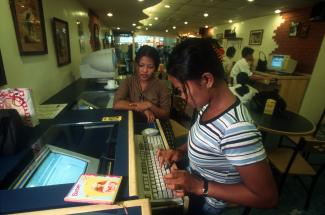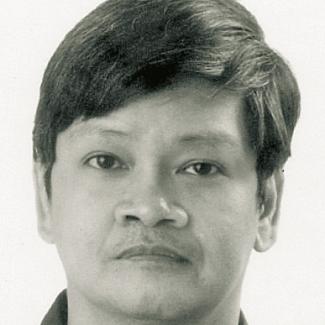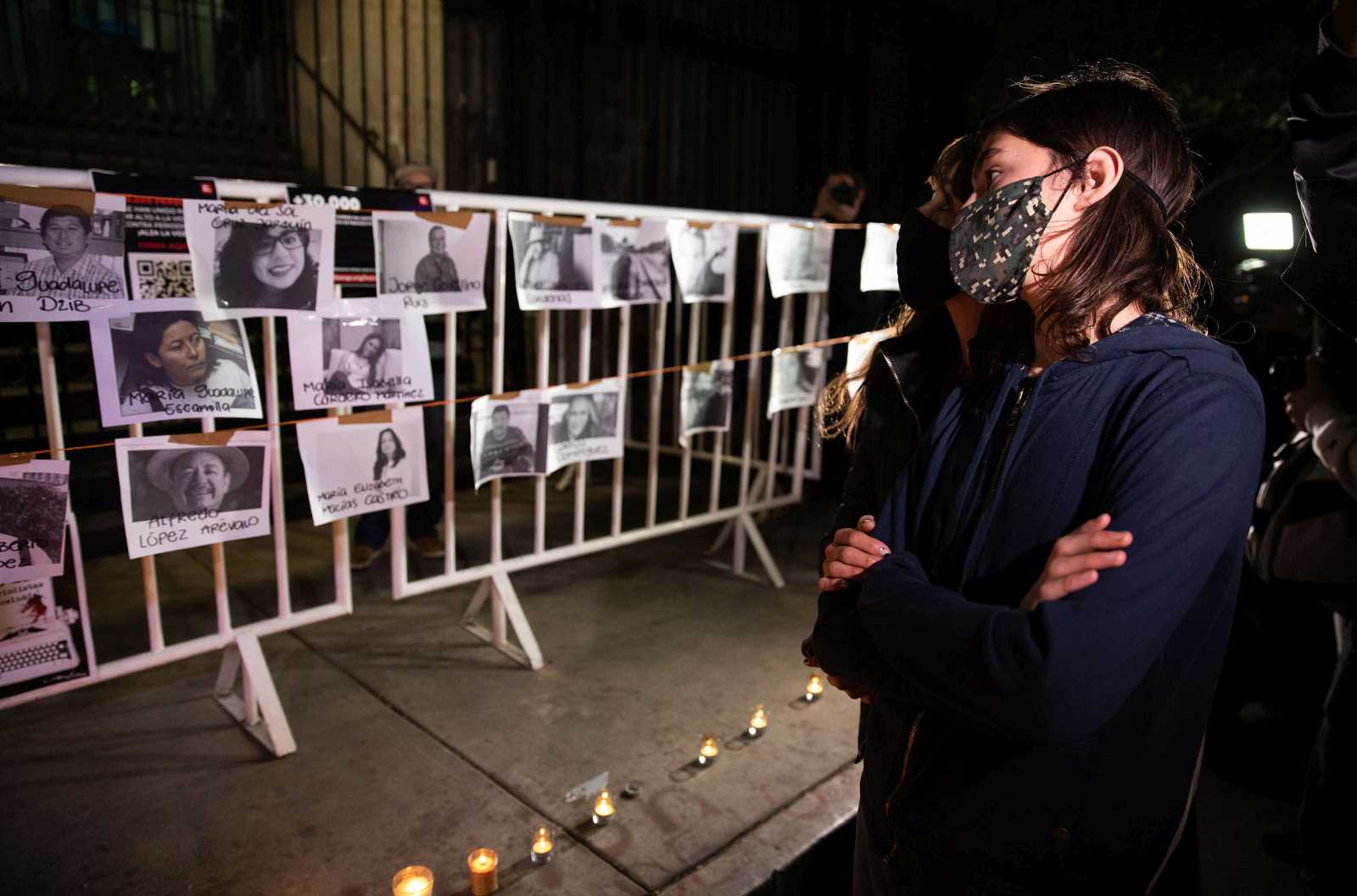Expanding market
Business dimensions

In 2013, 33 million people, more than one third of the population, were online. In absolute numbers this made Filipinos the second biggest nation of Internet users in Southeast Asia after Indonesians. In relative numbers, however, Singapore is far ahead with a penetration rate of 100 %.
People in Manila use the web to shop online, reserve seats at the movie theatre or book taxis. They go online to check weather forecasts or the state of traffic on specific streets. Social media networks buzz around the clock. Rural farmers and fisher folk find out about market prices online before deciding where to sell their goods.
The country officially connected to the Internet in 1994. Initially, many subscribers didn’t know what to do with their accounts apart from accessing email. Newspaper editors scoffed at the notion that online would ever replace paper. "You can’t bring a computer to the toilet", one editor said condescendingly. The Philippines’ telephone penetration, moreover, was extremely low.
Things have changed dramatically. Up to now, no daily paper has been put out of business by the Internet, but all of them have websites. One reason is that they must cater to Filipinos who live abroad and want to stay informed. No publisher can afford to neglect this important target group as about 10 % of the population work overseas. Most of them use the web to stay in touch with their families. Skype and Google Chat make videoconferences possible at virtually no cost at all, whereas overseas telephone rates are astronomically high.
The devices for accessing the Internet have become cheaper and smaller. PC ownership has always been low in the Philippines, so Internet cafés fast become a popular industry in the 1990s. Increasingly, however, people own their own gadgets. Those who can’t afford brands like Samsung and Apple buy inexpensive "Shenzen tablets" or low-cost smartphones. Google’s Manila office estimates the Philippines to be Southeast Asia’s fastest-growing smartphone market.
Telecom companies offer cheap Internet access. Many malls, restaurants and even fast-food establishments provide free WiFi connectivity. One burger-chain even offers free power charging for drained phones.
Filipinos aren’t just users of ICT, they are also practitioners. The Internet’s rapid growth probably owes a lot a solid cadre of computer professionals that existed even before the 1990s. In the past few years, this proficiency with digital technology has also turned the Philippines into a powerhouse in Business Process Outsourcing (BPO), the provision of call-centre services around the clock. The country is slowly edging out India in this industry, and today Indians have begun to come to Manila to learn how to operate such services. Apparently Filipinos have a language advantage because call-centre customers prefer their more American accents to Indian ones.
BPO in the Philippines has become so huge it’s given rise to new cultural, behavioural and architectural phenomena: entire buildings, even sectors in Manila are dominated by the industry and only come alive at night. Thousands and thousands of workers clock in roughly from 7 pm to 7 am. You can see office crowds after midnight as shifts change. There are shops open all night to serve them. These workers are mostly young people who burn out quickly and spend their money freely.
There still is lots of room for improvement of course. The Philippines ranks second in terms of slowest Internet speed in the world after Indonesia. Monthly broadband subscription rates cost more than they do in Europe. Internet access via smartphone may have become cheap, but it is still not affordable to the poor and the unemployed.
The overall trend is obvious, however: connectivity is growing fast, providing new opportunities to more and more people. Julian Persaud, the managing director of Google in Southeast Asia, says that "research indicates that number of Filipinos online will have nearly doubled by 2016" relative to 2013’s figures.
In the 1990s, the Internet guru Nicholas Negroponte predicted that a lot of what was happening in "real" life would have its equivalent in digital life. The Philippines is certainly heading that way. (ar)














